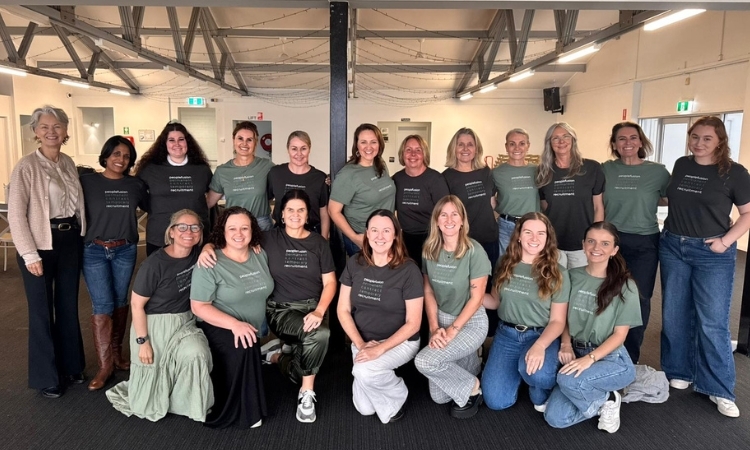How Knowing Your Team’s Motivations and Mindsets Fuels Organisational Success
At peoplefusion, we believe that sustainable team performance is grounded in understanding, of ourselves, of one another, and of the unspoken dynamics that drive how we work. That’s why we’ve embraced tools like the SDI 2.0 (Strengths Deployment Inventory) and the Saboteur Assessment, and regularly review our results in team sessions facilitated by Charlotte Thaarup from The Mindfulness Clinic.
These assessments aren’t just interesting personality tests, they are practical, evidence-based tools that promote self-awareness, psychological safety, and high-impact collaboration.
The SDI Model: Tapping into Motivations and Strengths
Developed by Crucial Learning, the SDI 2.0 model helps individuals and teams understand:
What drives our behaviour, particularly in situations of conflict or stress
What strengths we naturally use to build trust and achieve outcomes
How those strengths can become ineffective when overused or misunderstood
For leaders and organisations, this insight is incredibly powerful. It enables:
More empathetic leadership: Leaders who understand what motivates their team can tailor communication, feedback, and support in ways that resonate.
Stronger team dynamics: By recognising and appreciating diverse motivators and working styles, teams build trust faster and resolve conflict more constructively.
Productive conflict resolution: The SDI highlights how motivations shift under stress, allowing teams to anticipate and navigate tension more effectively.
Retention and engagement: Employees who feel understood and valued are more likely to stay and thrive.
The Saboteur Assessment: Tackling Internal Mindsets
Complementing this external awareness is the Saboteur Assessment, developed by Shirzad Chamine, based on his research in Positive Intelligence. This assessment uncovers the internal “saboteurs” - unconscious thought patterns we form in childhood to protect ourselves, which later limit us in adulthood.
These saboteurs (like the Judge, Hyper-Achiever, Pleaser, or Avoider) show up as stress, perfectionism, imposter syndrome, procrastination, and self-doubt. They sabotage our potential for both performance and happiness.
By identifying them, leaders and teams can:
Recognise unhelpful mental habits that may be limiting productivity or wellbeing
Shift to more empowering mindsets through awareness and practice
Strengthen resilience and emotional intelligence across the organisation
Enhance leadership presence by operating from purpose and confidence, not fear or ego
Why It Matters
In any organisation, success is driven not just by strategy or process, but by people, and how well those people understand themselves and each other. Tools like the SDI and Saboteur Assessment go beyond surface-level engagement to uncover the deeper forces shaping how individuals show up, collaborate, and lead.
At peoplefusion, we’ve seen first-hand how these insights help create a stronger, more cohesive team. But the benefits extend well beyond that, for any organisation looking to build high-performing, human-centred workplaces.
1. Improves Communication and Reduces Misunderstandings
Understanding what motivates a colleague, and how stress impacts their behaviour, helps teams navigate conversations with greater empathy and clarity. Instead of assuming intent, team members learn to ask questions, listen actively, and engage constructively, even during challenging moments.
2. Builds Trust and Psychological Safety
When people feel safe to be vulnerable, sharing their challenges, blind spots, or overdone strengths, it builds a culture of trust. These conversations break down silos, flatten hierarchies, and create space for honest, values-aligned collaboration.
3. Enhances Leadership Effectiveness
For leaders, these tools are a game-changer. They provide a roadmap to better understand what drives team members, how to motivate them meaningfully, and how to tailor feedback and support. Leaders also become more aware of their own mental habits and saboteurs, helping them lead with presence, not pressure.
4. Elevates Team Performance
When strengths are clearly understood and intentionally applied, and when overdone strengths or saboteurs are acknowledged and managed, teams become more agile, more collaborative, and more resilient. Energy is focused on performance, not politics.
5. Supports Employee Retention and Engagement
People who feel seen, heard, and understood are more likely to feel connected to their work, their team, and their organisation. These assessments support that connection by fostering alignment between personal values, team culture, and business outcomes.
6. Fosters a Culture of Growth and Self-Awareness
Perhaps most importantly, these tools nurture a mindset of continuous learning and self-leadership. Teams learn not to fear feedback or conflict, but to use it as fuel for improvement. The result is a workplace where people are not only effective, but fulfilled.
If you are interested in understanding what drives your team, please reach out to Charlotte Thaarup at The Mindfulness Clinic for more information.

